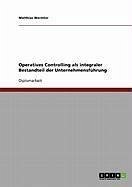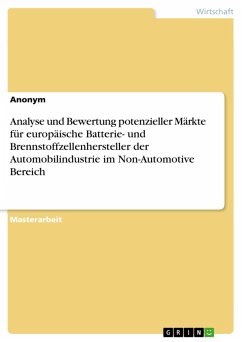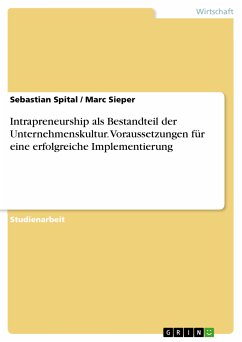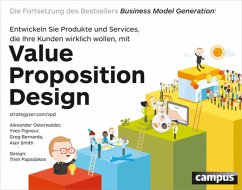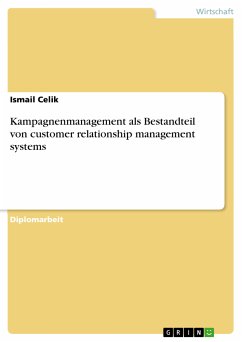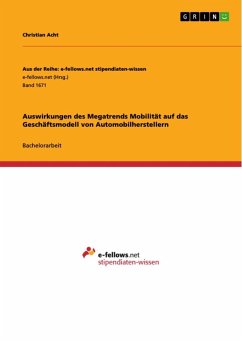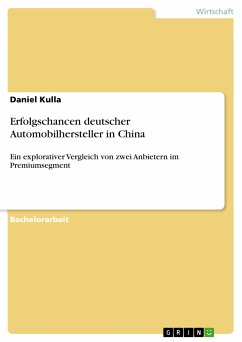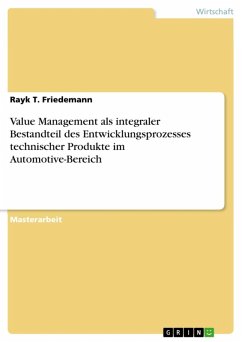
Value Management als integraler Bestandteil des Entwicklungsprozesses technischer Produkte im Automotive-Bereich (eBook, ePUB)
MBA - Masterthesis
Versandkostenfrei!
Sofort per Download lieferbar
Statt: 47,95 €**
36,99 €
inkl. MwSt. und vom Verlag festgesetzt.
**Preis der gedruckten Ausgabe (Broschiertes Buch)
Alle Infos zum eBook verschenkenWeitere Ausgaben:

PAYBACK Punkte
0 °P sammeln!
Masterarbeit aus dem Jahr 2010 im Fachbereich BWL - Unternehmensführung, Management, Organisation, Note: 1,7, Dresden International University (Kompetenzzentrum Logistik und Unternehmensführung), Sprache: Deutsch, Abstract: While a global crisis and countless recalls have negatively affected the automotive industry in recent months, business has improved more than expected. Despite the fast growing business, the pricing pressure has increased simultaneously. Experts advise suppliers to reduce costs as much as possible. Due to these facts, quality improvements and cost reductions are the majo...
Masterarbeit aus dem Jahr 2010 im Fachbereich BWL - Unternehmensführung, Management, Organisation, Note: 1,7, Dresden International University (Kompetenzzentrum Logistik und Unternehmensführung), Sprache: Deutsch, Abstract: While a global crisis and countless recalls have negatively affected the automotive industry in recent months, business has improved more than expected. Despite the fast growing business, the pricing pressure has increased simultaneously. Experts advise suppliers to reduce costs as much as possible. Due to these facts, quality improvements and cost reductions are the major goals of the future. Value management and value analysis have very similar key intentions: function improvements and cost minimization. To assure the development of products, which fulfill the customer's needs and can be sold at the price the customer is willing to pay, value management needs to become an essential part of the development process. A key aspect of this is that eighty to ninety percent of a product's value is influenced during its design and development. This thesis gives an introduction to the basics and the importance of organizational impact of value management, including its efforts and benefits. After the characterization of the methods and tools a description of the capability and the distinction to target costing is shown. The following derivation starts with the standard development process and the design process according to VDI 2221, followed by the integrated product development and the specific features of APQP and VDA 4.3 - representing the automotive product development. After presenting already known approaches for the integration of value management into the development process, three new approaches are shown and discussed: using a novel construction kit, using a method integration or frontloading of value analysis, where value analysis activities are being set up at the outset. Finally, the current usage of value management is shown. Opinions of experts and of an online opinion survey demonstrate the relevance of the management style. The current value analysis for a seatbelt retractor at TAKATA-PETRI AG is shown in detail. As a result of all the above comparisons, the newly developed frontloading of value analysis seems to have the highest potential for the application and will be tested in the automotive business.
Dieser Download kann aus rechtlichen Gründen nur mit Rechnungsadresse in A, B, BG, CY, CZ, D, DK, EW, E, FIN, F, GR, HR, H, IRL, I, LT, L, LR, M, NL, PL, P, R, S, SLO, SK ausgeliefert werden.




